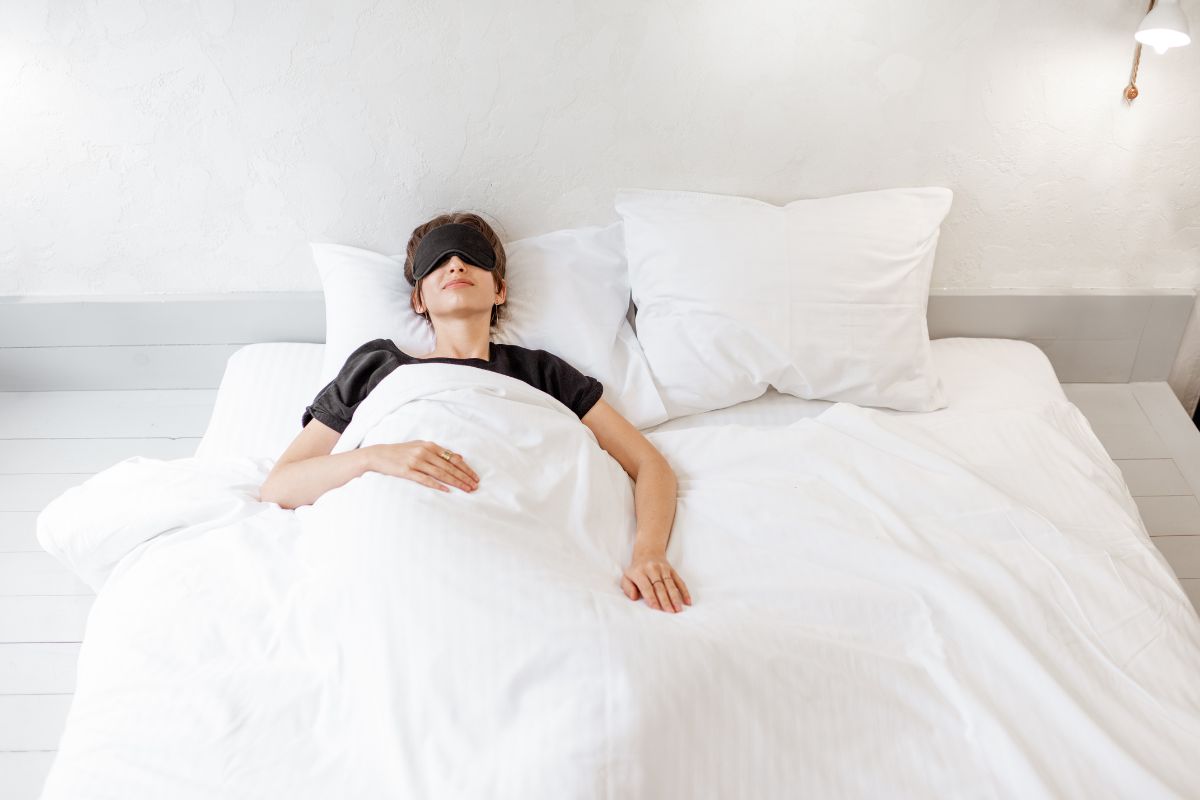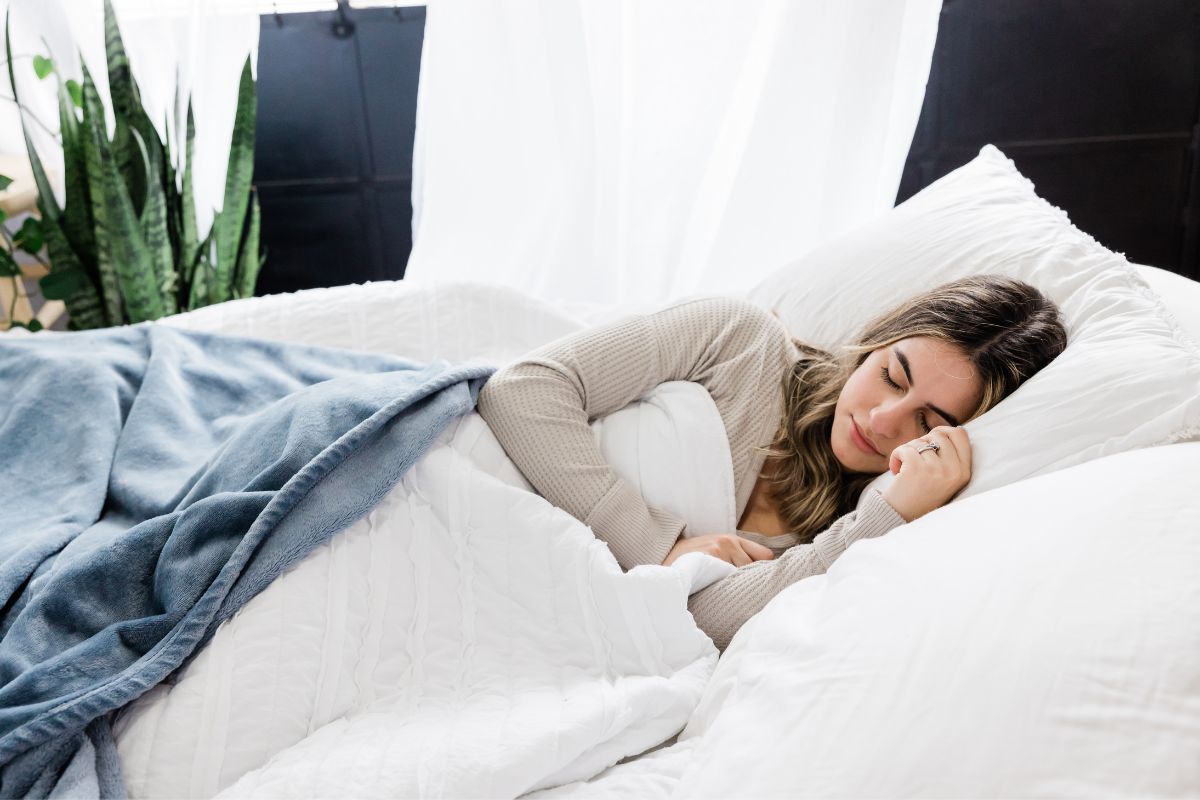How You Can Detox Your Sleep Routine and Get Better Quality Sleep
Do you feel like your energy levels are low during the day due to a lack of quality sleep? Are unhealthy habits such as late nights and excessive amounts of alcohol and caffeine drinks affecting your sleep?
Trying out detoxing your sleeping routine could be a fantastic way to get back on track.
Getting the perfect amount of quality sleep is essential for optimal physical and mental health.
Fortunately, there are lots of ways you can do this without spending money or taking pills – all by simply detoxing your sleeping routine.
In this article, we will explore how to develop healthier habits before going to sleep to improve restfulness and energy during the day.
Why Should You Do A Sleep Detox?
When it comes to detoxing, most people think of the physical effects that their body goes through when they are trying to recover from an addiction.
Symptoms such as nausea, depression, and shakes can all be part of the process. But what about detoxing your brain? Is it possible to do this in the same way you would detox your body?
Sleep is essential for our physical and mental health, and science suggests that it may be the best detox for our brains.
During sleep, the brain undergoes physical changes that help to flush away toxins more effectively. This process is known as the glymphatic system, which is most active during deep sleep.
Usually, your body’s system works best during deep sleep, which is between the early hours of the morning.
What Can You Do To Detox Your Sleep?
Getting a good night’s sleep is essential for our physical and mental health.
Unfortunately, staring at screens late into the night can have a negative impact on our sleep quality. And this is just one of the factors that can disrupt sleep.

Related Article: Can a Cleanse Make You Tired?
Do Not Disturb Mode
Having a good night’s sleep is essential for our physical and mental health. Unfortunately, our phones can often get in the way of that.
To help ensure you get the restful sleep you need, it’s important to set your phone to “Do Not Disturb” mode at night.
This will prevent your phone from ringing or vibrating if someone calls or texts you during the night, which can disrupt your sleep.
In addition to setting your phone to Do Not Disturb mode, it’s also a good idea to turn off any notifications from apps like email and social media before bedtime.
That way, even if you forget to put your phone on Do Not Disturb mode, you won’t be disturbed by notifications throughout the night.
Taking these steps can help ensure that you get a good night’s rest without interruption from your phone.
Stretching
Stretching is a great way to relax your body and prepare for sleep. It can help you release tension, reduce stress, and improve circulation.
Doing some light stretching before bed can be a great way to get a good night’s rest. Stretching helps to loosen tight muscles and joints, which can help reduce pain and stiffness in the morning.
When stretching before bedtime, it’s important to focus on slow, gentle movements that don’t require too much effort or strain on your body.
Start with simple stretches like neck rolls or shoulder shrugs and gradually move into more complex stretches such as lunges or yoga poses.
Aim for 10 minutes of stretching each night before bedtime; this will give your body enough time to relax without overstimulating it.
Fewer Lights
Too much light can be detrimental to our sleep. To limit the amount of light in your bedroom, you should hang curtains or blinds on your windows.
Additionally, using a sleep mask will help completely block out any remaining light.
It is also important to remember to put away electronic devices before bedtime, as they emit blue light that can disrupt our circadian rhythm and make it harder for us to fall asleep.
Related Article: What Is the Sweet Freedom Detox?
Herbal Teas
Coffee and other caffeinated drinks can be great for giving us a boost of energy throughout the day, but they can also lead to restless nights.
Caffeine is a stimulant, so it can make it difficult to relax and fall asleep. If you’re having trouble sleeping at night, one of the best things you can do is switch to herbal tea.
Herbal teas are naturally caffeine-free and have calming properties that can help you relax before bedtime.
Chamomile tea is the most effective herbal tea for sleep because it contains compounds that have been shown to reduce anxiety and promote relaxation.
Drinking a hot cup of chamomile tea as part of your evening routine can help your body wind down and prepare for sleep. Other herbal teas like lavender or valerian root may also be beneficial for promoting restful sleep.
Meditation
Mindful meditation before bed can be a great way to help you relax and get ready for sleep. It allows your body to take a break from the stressors of the day and slow your thoughts so that you can drift off into a peaceful slumber.
Mindful meditation is an easy practice that anyone can do, no matter how busy their day has been Mycleanseplan.
All it takes is a few minutes of quiet time to focus on your breathing and let go of any worries or anxieties that may be keeping you up at night.
When doing mindful meditation before bed, it’s important to find a comfortable position and focus on your breathing.
Explore Also:
Creativehouseblog
Dietsheriff
Gigasecurehome
You can close your eyes, take deep breaths in through your nose and out through your mouth, and allow yourself to clear your mind of any thoughts or worries that may be lingering from the day.
Doing this simple practice for just a few minutes will help you relax and prepare for restful sleep.
Related Article: Can a Cleanse Make You Sick?
Final Thoughts
Getting effective sleep is essential for our overall health and well-being. If you’re having trouble sleeping, it may be time to try detoxing your routine before bed.
By limiting the amount of light in your bedroom, switching to herbal teas instead of caffeinated drinks, and practicing mindful meditation before bed, you can create an environment that will help you get the restful sleep you need.
Related Article: How To Cleanse Your Colon Naturally – Easier Than You Think







